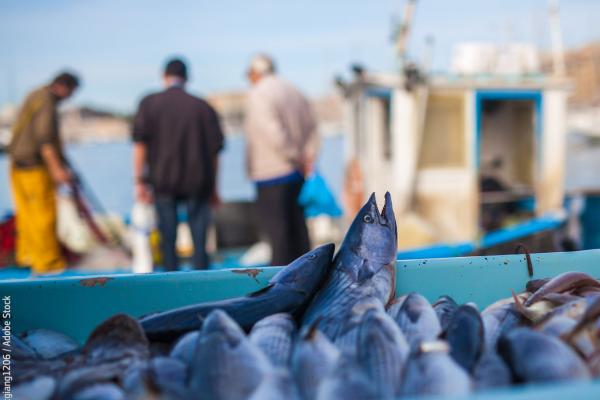Total allowable catches
Total allowable catches (TACs), or fishing opportunities, are catch limits (expressed in tonnes or numbers) that are set for most commercial fish stocks. TACs are
- set annually for most fish stocks (every 2 years for deep-sea stocks)
- based on scientific advice on the stock status from advisory bodies (ICES and STECF)
- agreed with non-EU countries for stocks that are shared and jointly managed
- shared between EU countries in the form of national quotas
- follow the rules of the common fisheries policy to achieve sustainable fisheries, as set in the multi-annual plans
EU countries can exchange quotas but must use transparent and objective criteria when distributing national quotas among their fishers. They are responsible for ensuring that the quotas are not exceeded. When an EU country’s available quota for a species is exhausted, it must close the fishery.
Reporting
EU countries report their fisheries catches and effort regime to the EU for fisheries control purposes. The EU reports on its catches under international agreements to RFMOs, and to non-EU countries under bilateral agreements.
A global overview of these statistics are published below to show how the EU manages its fish stocks. The statistics cover 2023 and will be updated yearly for the previous year.
Landing obligation
- concerns species under TACs or species which have a minimum landing size (MLS)
- requires all catches of regulated species to be landed and counted against the quota
- undersized fish cannot be sold for human consumption
- prohibited species (e.g. basking shark) must be returned to the sea – discards should be recorded in the logbook
Fisheries in non-EU countries’ waters do not fall under the landing obligation.
By-catch provisions in closed areas
By-catch in fisheries is the incidental capture of non-target species.
Where closed area affects a fishery falling under the landing obligation, all by-catch must be landed and counted against quotas.
The closure or restrictions will still apply, and targeted fishing of the species that is protected is still prohibited. The details of the closures remain unaltered.
Catches of prohibited species (e.g. basking shark) cannot be retained on board and must be returned to the sea.
Other documents
- 31 JANUARY 2025
- 31 JANUARY 2025
- 10 FEBRUARY 2021
Media
Euronews Ocean: Fishermen in Poland fear for their jobs as cod numbers decline
Fishermen in Poland are concerned for the future of their industry.
For months, their vessels could not leave port due to the ongoing ban on catching cod - a restrictive measure that scientists deem necessary to save collapsing stock populations in several European seas.
In this edition of Ocean, Euronews meets those who have been directly affected by the ban - and explores why cod stocks are in such decline.
News

- News announcement
For the first time, the EU publishes statistics of total allowable catches (TACs) and fishing days at sea or fishing effort. TACs and fishing days are the two main management measures the EU uses under the common fisheries policy to achieve sustainable fisheries.
- 1 min read

- News announcement
Today, EU fisheries ministers agreed fishing opportunities for 2025 for the Atlantic and North Sea, Mediterranean and Black Sea.
- 4 min read

- Supplementary information
In a step towards sustainable fisheries management, EU fisheries ministers have reached an agreement on fishing opportunities for 2025 in the Mediterranean and Black Sea. The agreement, which was finalized yesterday, aims to ensure the conservation and sustainable exploitation of demersal stocks in
- 4 min read
